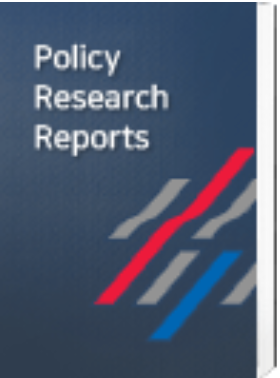Policy Research

RESEARCH
KOTI - Korea Transport institute
Research on improving LAST-MILE LOGISTICS INDUSTRY DEVELOPMENT ACT to using new delivery vehicles (Drone, Outdoor Mobile Robot)
- Date
November 19 2024
- Page(s)
page(s)
#new delivery vehicles
#Drones
#outdoor mobile robots

The recent revision of the Last-Mile Logistics Industry Development Act(January 16, 2024) has established a legal framework to enable the use of drones and outdoor mobile robots in logistics services. These unmanned vehicles, operated remotely, offer innovative delivery solutions but also introduce safety concerns when used in public spaces such as roads, sidewalks, and urban airspace. To address these challenges, relevant laws define and regulate their operation. Logistics service providers must comply with these regulations and meet qualification requirements to utilize drones and outdoor mobile robots for delivery services. However, while the Last-Mile Logistics Industry Development Act mandates that such requirements be outlined in subordinate legislation, these provisions are currently absent. Additionally, unlike small parcel delivery services, which operate under a registration system, utilizing new delivery methods requires amendments to the registration requirements.
This study investigates the regulatory landscape surrounding drones and outdoor mobile robots, focusing on their compliance requirements under various laws. It examines the specific conditions that parcel service operators must meet to incorporate these innovative delivery methods and supports the development of subordinate legislation under the Last-Mile Logistics Industry Development Act. Furthermore, the study identifies policy measures to promote the adoption of these technologies in the domestic logistics sector.
The research comprises three key objectives: First, it reviews the current state of domestic and international legal and regulatory frameworks for drones and outdoor mobile robots. Second, it analyzes operational cases where these technologies are actively used, drawing implications and identifying strategies to promote their wider adoption. Finally, it proposes detailed qualification requirements and compliance standards for parcel service operators, tailored to different scenarios, and suggests policy directions to facilitate the activation of new delivery methods under the enforcement ordinance of the Last-Mile Logistics Industry Development Act.
This study investigates the regulatory landscape surrounding drones and outdoor mobile robots, focusing on their compliance requirements under various laws. It examines the specific conditions that parcel service operators must meet to incorporate these innovative delivery methods and supports the development of subordinate legislation under the Last-Mile Logistics Industry Development Act. Furthermore, the study identifies policy measures to promote the adoption of these technologies in the domestic logistics sector.
The research comprises three key objectives: First, it reviews the current state of domestic and international legal and regulatory frameworks for drones and outdoor mobile robots. Second, it analyzes operational cases where these technologies are actively used, drawing implications and identifying strategies to promote their wider adoption. Finally, it proposes detailed qualification requirements and compliance standards for parcel service operators, tailored to different scenarios, and suggests policy directions to facilitate the activation of new delivery methods under the enforcement ordinance of the Last-Mile Logistics Industry Development Act.